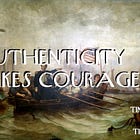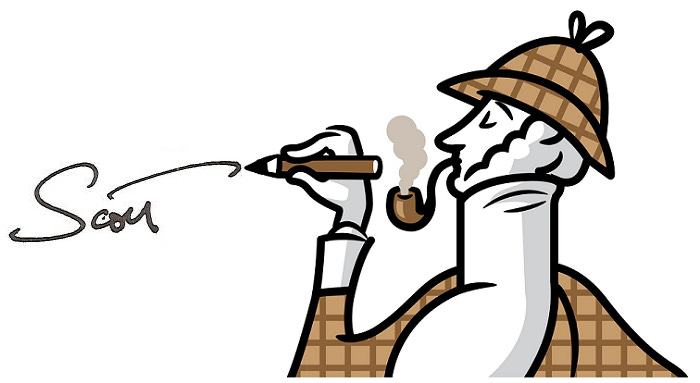Being a Leader Means Having a Moral Conscience
Be true to your convictions
We’ve lifted the paywall on this edition from our Archives. If this resonates with you, please share and subscribe.

“If you don’t stand for something, you’ll fall for anything.”
— Irene Dunne, 1945
Everywhere you look, unethical behavior seems rampant.
We see lapses of judgment and an absence of being guided by our better selves. Good leaders know that corruption, greed, or calumny are selfish and small-minded behaviors that do nothing for the greater good.
That last word — calumny — isn’t widely used anymore.
Calumny is “a false and malicious statement designed to injure the reputation of someone or something.”
And I was reminded of its famous use in a speech on June 1, 1950, by Senator Margaret Chase Smith, which still has familiar echoes today.
A philosophy that lacks political integrity or intellectual honesty would prove equally disastrous to the nation
Earlier that year, Senator Joseph McCarthy began his campaign against what he said were Communists within the United States. He targeted public figures and private citizens alike, including members of Harry Truman’s State Department, calling it “a final, all-out battle between communistic atheism and Christianity.”
Senator Smith was a Republican like McCarthy, but she decided she had had enough. She made a speech, titled “Declaration of Conscience” in which she roundly criticized the House Un-American Activities Committee without naming McCarthy personally.
Those of us who shout the loudest about Americanism in making character assassinations are all too frequently those who, by our own words and acts, ignore some of the basic principles of Americanism:
The right to criticize;
The right to hold unpopular beliefs;
The right to protest;
The right of independent thought.The exercise of these rights should not cost one single American citizen his reputation or his right to a livelihood nor should he be in danger of losing his reputation or livelihood merely because he happens to know someone who holds unpopular beliefs.
This was a risky move, as she might incur the wrath of her colleagues as well as her constituents, but she felt compelled by a greater purpose than party loyalty.
She rose, saying,
“I speak as a Republican, I speak as a woman. I speak as a United States Senator. I speak as an American.”
Even then, she recognized the divisiveness of calumny and how pervasive and accepted ignorance was.
“Today our country is being psychologically divided by the confusion and the suspicions that are bred in the United States Senate to spread like cancerous tentacles of "know nothing, suspect everything" attitudes.”
Smith stated a desire to see a change in the administration but admitted that doing so without a moral conscience could do even more damage.
“Yet to displace it with a Republican regime embracing a philosophy that lacks political integrity or intellectual honesty would prove equally disastrous to the nation. But I do not want to see the Republican party ride to political victory on the Four Horsemen of Calumny — Fear, Ignorance, Bigotry, and Smear.”
Her declaration included five principles she hoped her party would adopt, as she concluded:
“It is high time that we all stopped being tools and victims of totalitarian techniques—techniques that, if continued here unchecked, will surely end what we have come to cherish as the American way of life.”
Only six — SIX! — fellow Republicans signed the declaration. Others applauded her courage or privately expressed support, but refused to show the same courage themselves.
The country continued the wave of the red scare. It wasn’t until a full four years later on June 9, 1954, well into the Eisenhower administration, that Joseph Welch, a Boston lawyer representing the Army at the McCarthy hearings in the Senate, stood up to the bullying senator on national television and said, “At long last, have you no sense of decency?”
“Look at the facts of the world. You see a continual and progressive triumph of the right. I do not pretend to understand the moral universe; the arc is a long one, my eye reaches but little ways; I cannot calculate the curve and complete the figure by the experience of sight; I can divine it by conscience. And from what I see I am sure it bends towards justice.”
— Theodore Parker, 1853
We need leaders who will be true to their convictions.
Moral courage and moral conscience can be difficult when there is so much outrage and outcry, particularly online.
But we’ve seen examples of businesses that are standing up for what they believe in, or for what they believe is right.
Such as a group of CEOs sending a letter to the Senate in support of legislation for improved gun safety. And companies that are actually making a difference like they say they are.
These are risky actions. They may put off some customers who automatically reject anything related to “wokeness,” and they may anger some shareholders who want short-term results.
Such are the situations in which leaders find themselves and the hard decisions they sometimes need to make.
If you know what you stand for, then any kind of temptation like money, power, or fame will be impervious to your principles.
We need leaders who will be true to their convictions.
There’s so much to learn,







Very interesting. Welch saying that was captured on film, and is on YouTube. It's even more powerful when you see it than when you read it: https://youtu.be/PTwDUpbQHJg You might be interested in a radio play that I wrote about McCarthyism, especially as the play is still available, and the main actor sounds just like McCarthy: https://terryfreedman.substack.com/p/the-investigator?s=w
One thing I would take issue with, though. Like you, I think words matter. You say you are not "just" a writer. Writers are the backbone of our community, and they generate, either directly or indirectly, billions of dollars' and pounds' worth of business. I don't think any writer should describe themselves as "just" a writer! Just sayin'
I actually meant to write "a radio play about McCarthyism that I wrote about" -- I didn't write the play!